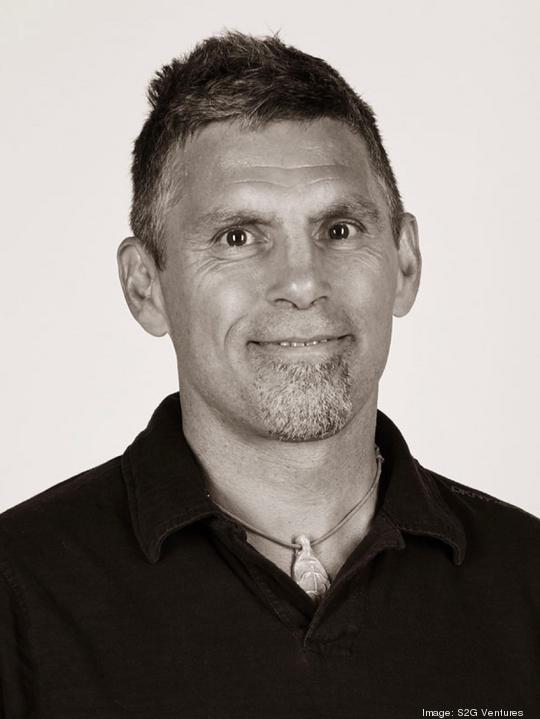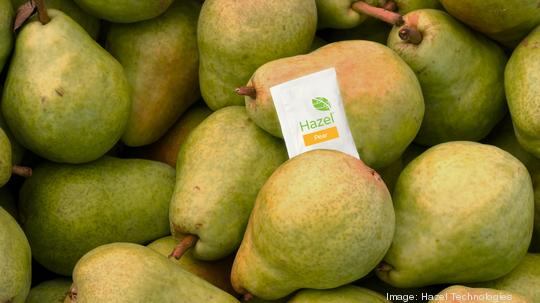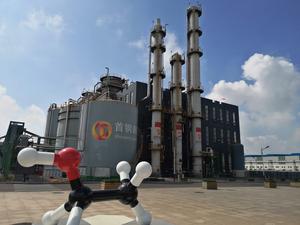From the farmland soil to the grocery store shelf, S2G Ventures has been investing in food businesses across the supply chain that are working to positively impact the environment. And since its launch in 2014, the Chicago-based VC firm has become one of the top food and agriculture venture firms in the world, having raised over $1 billion to back startups whose food solutions are paving the way for a healthier planet.
Led by Chuck Templeton, the founder of OpenTable, S2G raised a debut fund in 2015 of $125 million and quickly followed with a $280 million fund in 2017. Last year, S2G Ventures quietly raised its third fund at $550 million, the details of which have not previously been reported.
Those funds, combined with a $100 million fund the firm announced last year that's focused specifically on oceans and seafood, have positioned S2G as the premier food and ag startup investor in the country with over $1 billion in assets. Last year S2G Ventures was the most active food-focused VC fund in the world, investing in 37 companies, according to Agfunder's 2021 AgriFoodTech Investment Report.
But beyond simply investing in trendy food startups, S2G has set out to help fight climate change with its investment dollars.

"Food has a tremendous amount of impact on the climate," Templeton said. "If you're building a company that's not going to address climate change as part of one of its goals, then you're going to be building a company that's less competitive going forward."
Templeton said venture capital has an opportunity to play a strong role in climate health in a way that corporate investment often cannot.
"I think venture can take a very aggressive role (in addressing climate change) because there are a lot of different types of ideas that need to be tried," he said. "And a lot of corporate America doesn't have the R&D mindset or capital set aside to be able to go after some of those opportunities as aggressively."
Just seven years after launching, S2G has seen some of its food startup bets pay off. It invested in Beyond Meat, which went public in 2019 and became the best-performing public offering by a U.S. company since 2000. It invested in AppHarvest, an agtech startup that helps grow non-GMO and chemical-free produce that went public last year. And Vindara, a North Carolina-based seed developer, was acquired by vertical grower Kalera for $23 million.
It also has a handful of other high-growth startups in its portfolio, including Sweetgreen, Apeel Sciences, Good Eggs, Benson Hill and Greenlight Biosciences, all of which have raised over $100 million in funding. S2G can write checks up to $50 million, Templeton said.
S2G has also backed Chicago startup Hazel Technologies, a company that creates packaging inserts that release anti-fungal vapor that can extend the shelf life of fruits and vegetables. It raised $70 million in a round just this week, and by the end of this year it will have saved nearly 1 billion pounds of produce from spoiling since its launch in 2015. The United States wastes between 30% and 40% of its food supply, according to the USDA — a volume that not only has an impact on hunger, but also on the environment.
Hazel CEO Aiden Mouat said having an investor in your backyard that cannot only write large checks, but also has deep industry expertise and a high profile across the startup landscape gives the startup a major boost.
"They’re premiere," Mouat said of S2G. "It's about the marquee nature of the VC. There's plenty of VCs that have relatively deep pockets. That's one value add. But another value add is this participation internationally," adding that S2G has partnerships with groups like the Western Growers Association, which encompasses 70% of Hazel's California customers.
"That gives them a lot of credibility that you wouldn't see in an average VC," he said.

Hazel now works with more than 160 companies, including Mission Avocado, kiwi distributor Zespri, and Oppy, Canada's largest produce distributor.
"We view ourselves as a company that has the ability to uniquely impact the nature of food supply chains all across the globe," Mouat said.
When S2G lunched in 2014, it was one of of just a handful of food and ag-focused VC funds, and no one was taking S2G's approach of investing across the entire food supply chain, Templeton said. Today, it's taking a similar approach with its newest fund: a $100 million effort to invest in ocean and seafood startups.
That fund, led by managing directors Kate Danaher and Larsen Mettler, will back 10 to 15 companies, writing upfront checks between $500,000 and $5 million. It's an ambitious effort that aims to improve the health of our oceans and create sustainable seafood, and Templeton says it's the largest such fund in the U.S. that's entirely dedicated to ocean startups.
"The oceans are 70% of the planet. We’ve explored less than 5% of them," Templeton said. "And there’s very limited dedicated capital going in to it."
S2G's oceans fund has so far backed three companies and is about to close two more deals, managing director Larsen Mettler said, with a focus on ocean health, pollution, water quality and animal health, among other things. Mettler said the opportunity to invest in oceans and seafood is not only large financially, but also in the benefit it can leave on the planet.
"I think it can out perform on the investment side and have a tremendous impact on the environmental side as well," he said.
Beyond the direct investments S2G makes in climate startups, it's also publicly called for the private markets to catalyze $10 billion of investment in food and agtech innovation over the next three years in an effort to create a more sustainable food ecosystem. And it plans to do so by co-investing in cleantech companies alongside other premier Silicon Valley investors, like Google Ventures, Andreessen Horowitz, Benchmark and others.
And Templeton believes Chicago is positioned to be a leader in sustainable food startups for years to come.
"I think it's a perfect location to do that," he said. "You have a lot of food companies that are there. You're in the middle of the Midwest, which is farmland central. There's a great transportation hub. It is a really good location."




